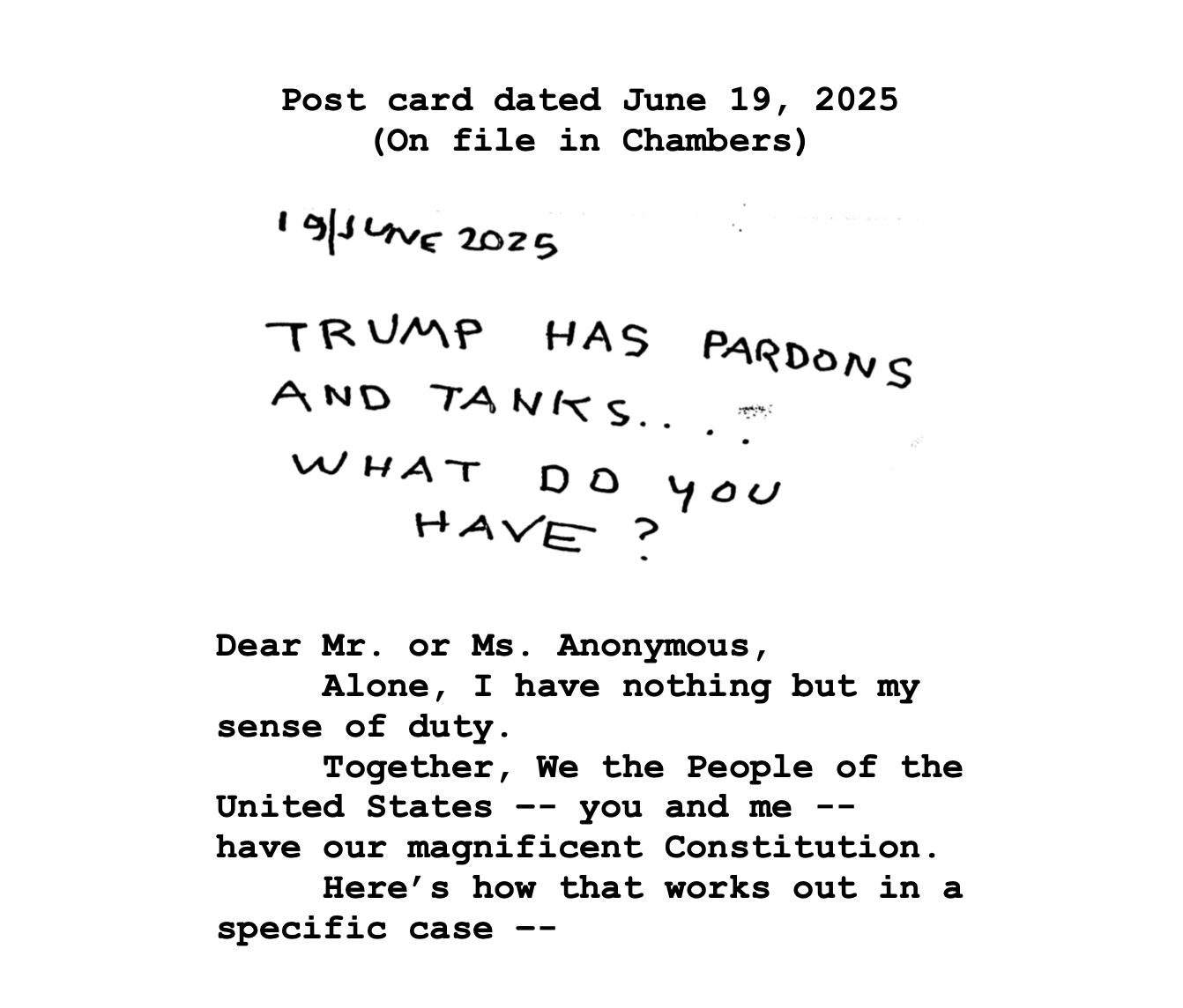A federal judge unloaded on Donald Trump and top administration officials for threatening First Amendment rights of international students for demonstrating against Israel’s war in Gaza.
A damning 161-page opinion Tuesday found that State Secretary Marco Rubio and Homeland Security Secretary Kristi Noem illegally chilled protected speech of pro-Palestinian students and faculty by threatening to revoke their visas and then arresting, detaining and deporting them — what the judge called a “full-throated assault on the First Amendment across the board under the cover of an unconstitutionally broad definition” of antisemitism.
The ruling from Massachusetts District Judge William Young, who was appointed by Ronald Reagan, also spends several pages rebuking “justice in the Trump era” and the president’s campaign of “retribution” and “bullying” of political opponents while he “simply ignores” the Constitution as well as “our civil laws, regulations, mores, customs, practices, courtesies — all of it.”
“While the president naturally seeks warm cheering and gladsome, welcoming acceptance of his views, in the real world he’ll settle for sullen silence and obedience,” Young wrote. “What he will not countenance is dissent or disagreement.”
The judge even included a threatening note his chambers received. The first page of the ruling includes a hand-written note reading “TRUMP HAS PARDONS AND TANKS… WHAT DO YOU HAVE?”
The judge included his response: “Dear Mr. or Ms. Anonymous, Alone, I have nothing but my sense of duty. Together, We the People of the United States — you and me — have our magnificent Constitution. Here’s how that works out in a specific case.”
The ruling follows a nine-day trial stemming from a lawsuit brought by university professors and groups representing faculty and graduate students who argued the administration mounted an unconstitutional campaign against pro-Palestinian campus activists — including Columbia University graduate Mahmoud Khalil — with the aid of anonymous pro-Israel activist websites.
Several high-profile cases involving prominent student activists are now at critical junctures after legal battles secured their release from Immigration and Customs Enforcement custody over First Amendment violations.
Khalil continues to fight an immigration judge order for his removal to Algeria or Syria, and Tufts University scholar Rumeysa Ozturk and Columbia University student Mohsen Mahdawi are challenging the administration’s attempts to appeal court orders that released them from ICE detention.
Rubio sought to justify the arrests of international students for their pro-Palestine activism by claiming their presence in the country undermines foreign policy interests to prevent antisemitism. He has said he “proudly” revoked hundreds of student visas over campus activism, leading to several high-profile arrests.
Homeland Security assistant secretary Tricia McLaughlin accused Judge Young of “smearing and demonizing federal law enforcement” in his ruling, which accused Immigration and Customs Enforcement agents of covering their faces to “terrorize Americans into quiescence.”
Ozturk was grabbed off the street by masked, plain-clothes federal agents in apparent retaliation for an op-ed she co-wrote that criticized Israel.
“Our ICE law enforcement should be thanked for risking their lives every day to arrest murderers, pedophiles, rapists, gang members, and terrorists instead of vilified by sanctuary politicians,” McLaughlin said in a statement to The Independent. “It’s disheartening that even after the terrorist attack and recent arrests of rioters with guns outside of ICE facilities, this judge decides to stoke the embers of hatred.”

Judge Young — who said the case may be “the most important ever to fall within the jurisdiction of this district court” — said it squarely asks whether non-citizens lawfully present in the United States “actually have the same free speech rights as the rest of us.”
“The Court answers this Constitutional question unequivocally ‘yes, they do,’” he wrote.
The trial and evidence provided “clear and convincing evidence” that Noem and Rubio “deliberately and with purposeful aforethought” worked “intentionally to chill the rights to freedom of speech and peacefully to assemble,” the judge wrote.
Judge Young did not immediately order the administration to change course but said he will hold further proceedings to determine how to prevent the government from further infringing on the First Amendment rights of students and faculty.
“The United States is under no obligation to allow foreign aliens to come to our country, commit acts of anti-American, pro-terrorist, and antisemitic hate, or incite violence,” State Department principal deputy spokesperson Tommy Pigott said in a statement to The Independent.
“We will continue to revoke the visas of those who put the safety of our citizens at risk,” he added.
Democrats and the GOP agree on one thing — a government shutdown is inevitable
Government shutdown 2025 live: Spending plan deadline looms as Trump warns of layoffs
CNN fact-checker spends four minutes debunking Trump’s ‘lies’ in speech to military
Democrat tees off after Trump vows US cities could be ‘training grounds’ for military
Photojournalist hospitalized after ICE agents shove reporters in New York
‘Women for Trump’ founder fumes at ‘out-of-control’ grocery prices







